NTC
Sen. Bam: Drive down price of PH internet, encourage competition in telco sector
Competition will help lower the price and improve the quality of internet service in the country, Senator Bam Aquino maintained.
“Nalulunod na nga sa taas ng presyo ng bilihin, pati internet napakamahal dito sa atin. Mahal na nga, mabagal pa,” said Sen. Bam, chairman of the Committee on Science and Technology.
“We need more than three telcos to have a healthy competition. We should look at other countries aside from China,” added Sen. Bam.
As chairman of the Committee on Science and Technology, Sen. Bam is currently working on Senate Bill No. 171 or the Open Access in Data Transmission Act of 2016.
If enacted into law, Sen. Bam said the will enable more players into and promote competition in the internet industry.
Sen. Bam has been working to improve the quality of internet in the country. In the 16th Congress, he spearheaded an investigation into the slow and expensive internet in the country during his stint as chairman of the Committee on Trade, Commerce and Entrepreneurship.
The probe helped determine needed legislation to address the internet problem in the country and led to the release of a Department of Justice opinion on telco advertising.
The hearing also compelled the National Telecommunications Commission (NTC) to come out with guidelines on minimum internet speeds and conducted speed testing in various areas of the Philippines to check compliance of telcos.
As chairman of the Senate Committee on Science and Technology, Sen. Bam pushed for the passage of Republic Act 10929 or the Free Internet Access Program in Public Places as principal sponsor.
Sen. Bam pushes daily load notifications to resolve ‘nakaw load’ issue
Sen. Bam Aquino, chairman of the Committee on Science and Technology, instructed telecommunications companies to provide free daily notifications to subscribers regarding their load balance.
“Bigyan na ng resibo araw-araw ang mga subscriber at bigyan ng pagkakataong mag-reklamo kapag mayroong nakitang mali” said Sen. Bam, who spearheaded the committee hearing on the complaints of subscribers regarding disappearing load.
According to Sen. Bam, the National Telecommunications Commission (NTC) has committed to issue a memorandum circular that aims to address the problem of disappearing load or “nakaw load”, which will include his suggestion of daily notifications or receipts to subscribers.
“Bantayan natin para matiyak na maglalabas talaga ang NTC ng memorandum circular upang maipatupad ang pagbibigay ng digital na resibo o notification ang mga subscribers,” said Sen. Bam, referring to the NTC’s commitment to release the memorandum by June or July.
The NTC said that it also plans to include a minimum two-step process for subscribing to value-added services (VAS).
For their part, the telecommunications companies committed to the implementation of a three- or four-step verification process so clients are well-informed of the services they subscribe to.
“Ang hinahanap natin ay aksiyon. Solusyunan na natin agad itong isyu ng nawawalang prepaid load,” insisted Sen. Bam, the only senator in the hearing.
The hearing was called by Sen. Bam through Senate Resolution No. 595, directing the committee to determine the capacity and readiness of relevant government agencies and regulators to implement rules that will protect prepaid mobile subscribers.
Senate Bill No. 701: Penalties or Fines Against Erring Public Telecommunications
For years, Filipinos have been suffering from slow and expensive Internet as they struggle to communicate with loved ones living abroad, forge deals with potential business partners and clients around the world, or simply get work done and sent quickly and efficiently.
Our collective frustrations over our country’s Internet quality has been justified by studies on Internet speed and cost per country, putting the Philippines as slowest and most expensive in the region.
Being the fastest growing economy in the ASEAN, this is clearly unacceptable and measures to improve our Internet quality while driving down its cost must be prioritized.
One of the many steps we must take is to update current policies to ensure that Internet providers are held accountable for their activities.
Thus, this measure seeks to empower the National Telecommunications Commission (NTC) by increasing the penalties and fines for violations against the authority of the NTC and its released certificates, orders, decisions, resolutions, or regulations. With heavier penalties, NTC can expect greater compliance from Internet providers to standards and regulations that have been set to advance Internet quality in the Philippines.
Now, with the promise and potential of innovations coming from all corners of the world, we must band together to create a framework for the constant improvement of our internet services for the benefit of all Filipinos, especially those engaged in commerce.
When it comes to public services, we must do more than just keep up with the development of our neighbors, but exceed them. Let us band together to significantly improve our Internet services in the Philippines
In view of foregoing, the passage of this measure is earnestly sought.
SBN-3208: Increasing Penalties on Erring Telcos
For years, Filipinos have been suffering from slow and expensive internet as they struggle to communicate with loved ones living abroad, forge deals with potential business partners and clients around the world or simply get work done and sent quickly and efficiently.
Our collective frustrations over our country’s internet quality has been justified by studies on Internet speed and cost per country, putting the Philippines as slowest and most expensive in the region.
Being the fastest growing economy in the ASEAN, this is clearly unacceptable and measures to improve our Internet quality while driving down its cost must be prioritized.
One of the many steps we must take is to update current policies to ensure that internet providers are held accountable for their activities.
Thus, this measure seeks to empower the National Telecommunications Commission (NTC) by increasing the penalties and fines for violations against the authority of the NTC and its released certificates, orders, decisions, resolutions, or regulations. With heavier penalties, NTC can expect greater compliance from Internet providers to standards and regulations that have been set to advance Internet quality in the Philippines.
When it comes to public services, we must do more than just keep up with the development of our neighbors, but exceed them. Let us band together to significantly improve our Internet services in the Philippines.
In view of the foregoing, the passage of this measure is earnestly sought.
Bam Eyes Heavier Fines, Penalties Against Erring Telcos
As part of his advocacy for better Internet speed in the country, a senator wants to impose heavier fines and penalties on telecommunication entities that will violate all forms of directives from the National Telecommunications Commission (NTC).
Sen. Bam Aquino’s Senate Bill No. 3208 eyes to amend outdated provisions of Commonwealth Act No. 146 or the Public Service Law to make it attuned to present times, giving NTC more teeth in dealing with erring telecommunication companies.
In his measure, Sen. Bam wants erring telecom firms fined between P300,000 to P5 million for every day, per violation of any certificate, authority, resolution or regulation of the NTC.
The bill also empowers NTC to increase amount of fine every five years, subject to a certification from the National Economic Development Authority (NEDA).
Previously, the law imposes a measly fine of P200 per day for erring telecommunication companies.
Also, the measure also empowers NTC to impose a P300-million fine on public telecommunication entities that will perform any forbidden action or neglect or fail to perform required act.
“With heavier penalties, NTC can expect greater compliance from Internet providers to standards and regulations that have been set to advance Internet quality in the Philippines,” Sen. Bam said.
If enacted into law, Sen. Bam sees the measure will help improve the country’s slow and expensive Internet, which leaves millions of Filipinos collectively frustrated.
“Being the fastest growing economy in the ASEAN, this is clearly unacceptable and measures to improve our Internet quality while driving down is cost must be prioritized,” said Sen.Bam.
Sen. Bam also called on stakeholders to band together to create a framework for the constant improvement of the country’s Internet system for the benefit of all Filipinos, especially those engaged in commerce.
“When it comes to public services, we must do more than just keep up with the development of our neighbors, but exceed them. Let us band together to significantly improve Internet service in the Philippines,” said Sen. Bam.
For two years, Sen. Bam has been pushing for faster and cheaper Internet service, as he believes it will create jobs and livelihood and make the country more competitive.
Bam Expects NTC’s MC on Mobile Broadband to be Fair for Everyone
Senator Bam Aquino expects the National Telecommunications Commission’s memorandum circular (MC) on advertised speed of mobile broadband Internet to be fair for everyone.
“With 90 percent of our Internet users connect from mobile broadband, we need to ensure that this memorandum circular will be a win-win solution for everyone,” said Sen. Bam, chairman of the Committee on Trade, Commerce and Entrepreneurship, referring to the MC that will be released in November.
“Inaasahan natin na makukuha ng taumbayan ang bilis na ibinibida sa mga patalastas at ads,” Sen. Bam, who has continued to spearhead the Senate investigation on the slow and expensive Internet connection in the country.
Earlier, the NTC released Memorandum Circular No. 07-08-2015 for fixed-line broadband internet, such as DSL, fiber, and cable.
The MC states that broadband must have data connection speed of at least 256 kilobits per second (kbps) – the standard of the International Telecommunications Union.
Based on the memorandum circular, Sen. Bam said consumers may file a complaint against a telco if it fails to deliver the promised advertised speed.
Also, Aquino said the government must put premium on improving the country’s Internet infrastructure, especially in far-flung areas to give more Filipinos access to the world wide web.
Bam to NTC: Explain Delay in MC on Internet Standards
Where are we in improving the country’s Internet connection service?
Senator Bam Aquino made this pronouncement to the National Telecommunications Commission (NTC), as he wondered why the agency has not yet issued the memorandum circular on the quality of Internet standards.
“Six months have passed since the NTC committed to come out with the memorandum circular but until now, the agency has yet to deliver on its promise,” said Sen. Bam, chairman of the Senate Committee on Trade, Commerce and Entrepreneurship.
“The NTC must provide a detailed and acceptable report on its recent moves to improve the country’s Internet connection service as the approval of their 2016 budget heavily depends on that,” added Aquino.
Appointed recently as one of the vice chairman of the Senate Committee on Finance, Sen. Bam is tasked to scrutinize and approve the budget of several government agencies, including the NTC, Department of Trade and Industry (DTI) and the Bases Conversion and Development Authority (BCDA)
For almost a year now, Sen. Bam has been investigating the slow and expensive Internet in the country.
During one of the hearings earlier this year, the NTC promised to release a memorandum circular that will set Internet quality service in the country, including the minimum speed for broadband and DSL connections.
Six months after, the NTC has yet to deliver on its commitment, which Sen. Bam described as detrimental to the welfare of millions of Internet user in the country.
The committee hearing though has produced small victories that may help achieve a faster and cheaper connection.
The probe has encouraged telecommunication companies to embrace IP peering that will help speed up opening of websites while the Department of Justice (DOJ) has released guidelines against deceptive or misleading internet print, TV and radio advertisements.
BIDA KA: Maliliit na panalo
Mga Bida, pamilyar ba kayo sa terminong IP peering?
Kabisado ng mga techie o iyong mahihilig sa makabagong gamit at teknolohiya ang salitang ito ngunit hindi naman para sa mga ‘di techie.
Upang lubos na maunawaan ang takbo ng IP peering, gagamitin ko bilang halimbawa ang magkaibigang sina Vic at Joey, na magkaharap lang ang bahay sa Quezon City.
Kung may nais ibigay na regalo si Vic sa kanyang kaibigang Joey, pinapadala muna niya ito sa Estados Unidos bago ito makarating sa bahay ni Joey, at ganundin si Joey pag may ipapadala kay Vic.
Talagang pinapahirapan ng dalawang magkaibigang ito ang isa’t isa sa halip na tumawid na lamang sa kalsada at iabot ang mga regalo sa isa’t isa. Sa ganitong sistema, mabagal, sayang sa oras at magastos pa.
Ganito ang sistema ng ating telecommunications companies sa ngayon dahil sa kawalan ng IP peering. Ang dalawang telcos ay parang sina Vic at Joey na magkapitbahay lang pero wala silang direktang koneksiyon sa isa’t isa.
Kung ikaw ay isang subscriber at may bubuksan na website na nasa kabilang telco, bibiyahe pa ang data sa US bago bumalik ang iyong data sa iyong computer.
Sa ganitong proseso, mas matagal ang takbo ng ating Internet connection dahil kailangan pang bumiyahe sa milya-milyang kable ang data bago pa mabuksan ang website sa ating computer.
Subalit isang magandang balita ang ating tinanggap kamakailan sa padinig natin tungkol sa mabagal at mahal na Internet sa bansa.
***
Sinabi ng mga telcos at ng Department of Science and Technology (DOST) na malapit nang mabuo ang memorandum of agreement (MOA) para sa IP peering para sa lahat ng telcos sa bansa.
Sa plano, papayagan na ang IP peering gamit ang exchange server ng DOST upang direkta nang makapag-usap ang mga ISP nang hindi na dadaan pa sa ibang bansa.
May commitment na ang mga telcos at government agencies sa IP peering para sa mabilis na pagbuo ng MOA, na maaari nang mapirmahan anumang oras.
Kapag naisakatuparan ang IP peering, magiging lokal na ang nilalaman ng mga website sa Pilipinas. Mas bibilis ang Internet at mas madali nang magbukas ng mga website dahil hindi na kailangang umikot pa sa malayong bahagi ng mundo ang data.
***
Isa pa sa maituturing na maliit na panalo ay ang plano ng National Telecommunications Commission (NTC) na lumikha ng isang memorandum circular na siyang magtatakda ng dapat na bilis ng Internet sa bansa.
Kapag lumabas iyon, puwede na itong ibangga sa opisyal na bilis sa nakalagay sa advertisements ng telcos.
***
Sinimulan na rin ang pagtalakay sa mga proseso ng ating gobyerno ukol sa paglalagay ng telcos ng imprastruktura gaya ng cell site at mga kable na magpapabilis sa ating Internet.
Sa kasalukuyang sistema, labing-anim na hakbang at anim hanggang pitong national government agencies ang dapat daanan bago makapagpatayo ng imprastruktura sa isang lugar.
Dahil dito, napipigilan ang expansion programs ng telcos para sa mas magandang Internet.
Nagpahayag ang NTC na pag-aaralan ang mga nasabing hakbang para mas mapadali ang pagkuha ng mga permit ng telcos sa mga national agencies.
Sa panig ng DILG, nangako silang makikipag-ugnayan sa mga siyudad, munisipalidad at mga lalawigan para sa pag-aaral ng mga bayarin at mga proseso para makakuha ng permit ang ating mga telcos.
Noong nakaraang hearing, may nagsabi sa social media na, “we are barking at the wrong tree.” Mukhang maling isyu raw ang ating tinitingnan para masolusyunan ang problema sa ating Internet connection.
Ngunit para sa akin, ang tintingnan natin ay hindi iisang puno, kundi isang gubat na maraming masasalimuot at kumplikadong isyu.
Ang ginagawa natin, iniisa-isa natin ang pagresolba sa mga isyung ito upang maabot natin ang inaasam na malaking panalo para sa taumbayan.
Mga Bida, isang taon na ang nakalipas nang simulan natin ang pagtalakay sa isyu ng Internet. Hindi natin ito bibitawan hanggang sa makuha nating mga users ang nararapat na bilis, presyo at access ng Internet connection!
First published on Abante Online
Transcript of Sen. Bam’s interview after NTC public hearing on minimum internet speed
Q: Update po sa public hearing?
Sen. Bam: This is actually a public hearing ng National Telecommunications Commission (NTC) regarding the memorandum circular on publishing your minimum internet speed. Diyan sa public hearing, nagkaroon tayo ng iba’t ibang mga mungkahi, iba’t ibang mga suggestions at kuwento mula sa iba’t ibang stakeholders mula sa private sector at cause-oriented groups at pati na sa consumers.
Mukhang lumalapit na tayo sa pag-i-issue nito and the NTC committed na within March ilalabas na niya iyong memorandum circular, iyong patakaran kung saan kailangang i-publish ng ISPs or telcos iyong minimum internet speed na nakukuha ng ating mga kababayan.
At the end of the day kasi, mahalaga na ang binabayaran natin, nakukuha natin. Mawawala na ang misleading advertisements, at the same time, kung ano talaga iyong ma-e-expect sa pang-araw-araw na gawain, pati na sa ating Internet, sa telepono man or sa ating mga bahay, makukuha talaga ng taumbayan.
Right now, ang naging issue dito is yung batayan ng speed. Kasi maraming paraan kung paano pwedeng makuha ang speed sa iyong bahay o sa iyong lugar, ang mahalaga mayroon tayong isang batayan or a main standard. Part of that process was allowing NTC to purchase equipment, both hardware and software, para mayroon tayong official speed talaga ng isang ISP sa isang lugar.
Bawat telco, bawat ISP, may kanya-kanya silang mekanismo. Hindi naman tayo nag-a-agree. Ang mahalaga dito, all the stakeholders agreed that the NTC will be the official na tagabilang kung ano ang official speed sa inyong area. It’s now a matter of purchasing the equipment and providing the software, not just for the NTC pero para na rin sa consumers, para tayo rin, gamit ang software na iyon, puwede nating malaman iyong official na speed sa ating area at maibangga natin sa mga kontrata natin sa telco at ISP at malaman natin kung nakukuha natin ang nakasaad sa advertisements.
Q: May consumers tayo na can’t express ang reklamo nila…
Sen. Bam: Actually, malakas sila mag-express, especially online. Binabantayan na rin namin yan. The first step is really having this official standard. Kasi he said, she said iyan. Sasabihin ng isa na nakita ko sa isang website mababa, sasabihin naman ng telco, sa aming pag-aaral mataas naman iyan. Kaya ang NTC natin na siyang regulator, hindi makasabi kung ano dahil wala silang equipment at wala silang opisyal na batayan pagdating sa bilis at quality of service. With the equipment that they’re purchasing and this is a good step, hiningi nila ito last year, binigay naman sa budget, ngayon bibilhin na nila, magkakaroon tayo ng totoong standards. In the interest of fairness, an individual can check their speed at ang telco ay puwede nilang makita sa tool na iyan kung ano ang bilis nila sa isang particular area. In that sense, mailalapit natin kung ano ang user experience sa sinasabi ng ISP at telcos na binibigay nilang kalidad.
Q: Mensahe ho para sa consumers natin?
Sen. Bam: We’ve been having this hearings for a number of months already. Tuluy-tuloy ang hearing, maging sa Senado o maging sa NTC. Hindi natin pakakawalan ito hanggang maabot natin ang sitwasyon na satisfied ang mga tao pagdating sa kanilang internet speed, price and access.
Mahalaga ito sa mga tao dahil this is the way we communicate with relatives abroad, ito ang paraan kung paano tayo nakakakuha ng trabaho at nakakapagnegosyo. The only way we can move forward if is all sectors are helping each other. Hindi na sapat na we blame each other. We need to built a right internet infrastructure – ano ang kailangang gawin ng gobyerno, ano ang kailangan niyang ilaang pera sa budget natin, ano iyong kailangang gawin ng ating regulators at kung ano ang kailangang gawin ng consumers. Kasi napag-uusapan din iyong responsibilidad ng consumers pagdating sa internet usage.
Of course, kung ano iyong kailangan nating makita mula sa ating telcos at ISPs. Ano ang paraan na kailangan nilang ipakita para makita natin na handa sila na ibigay sa taumbayan ang binabayaran ng tao para sa kanilang serbisyo.
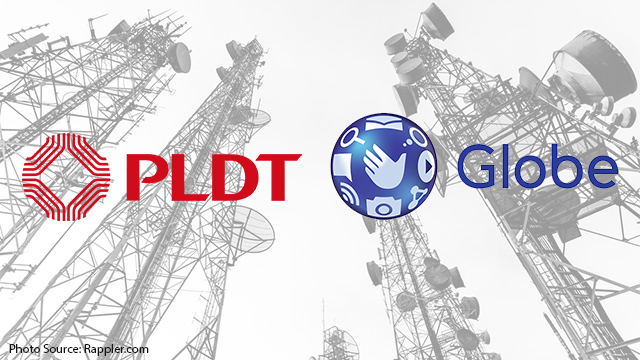
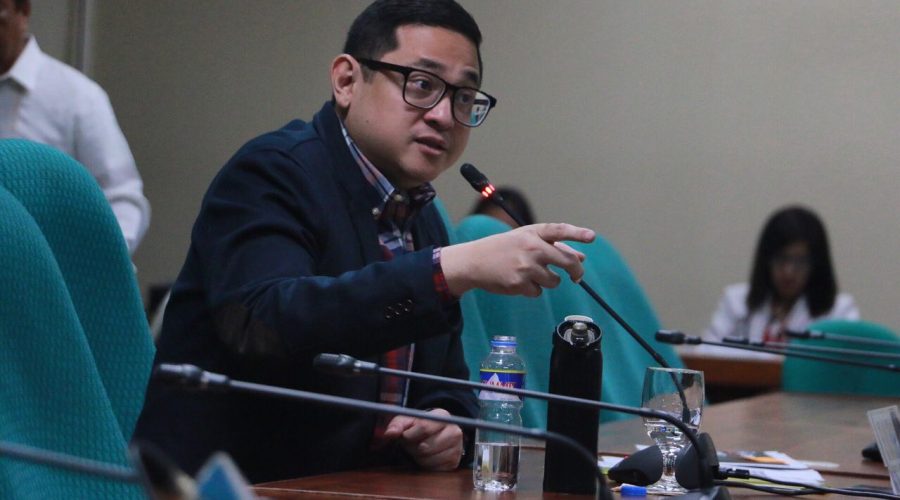
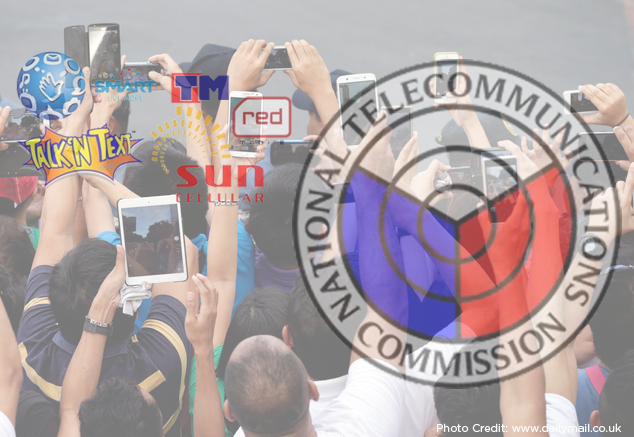
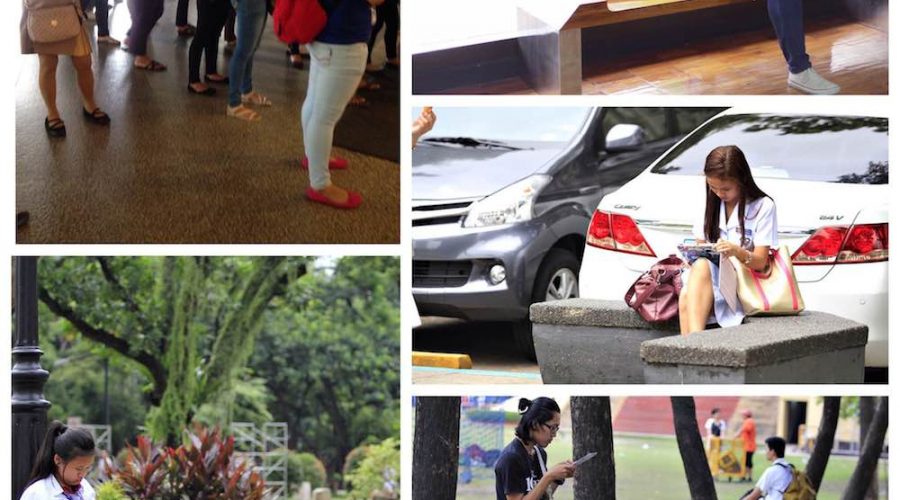
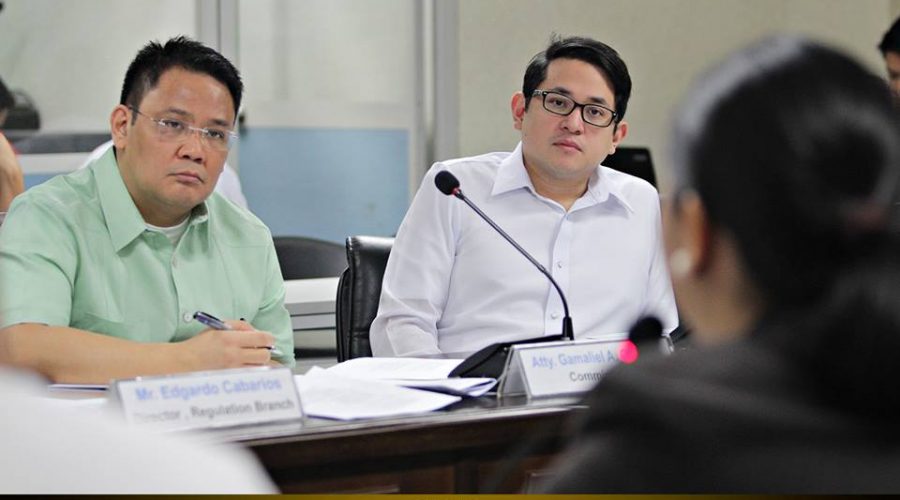
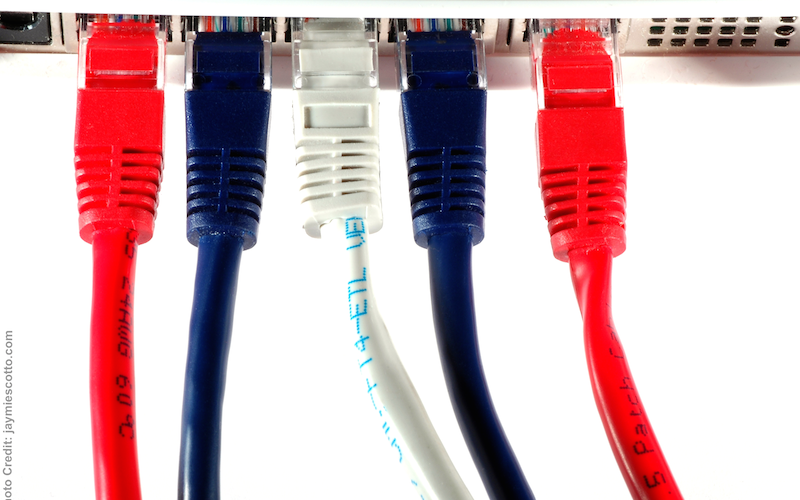
Recent Comments